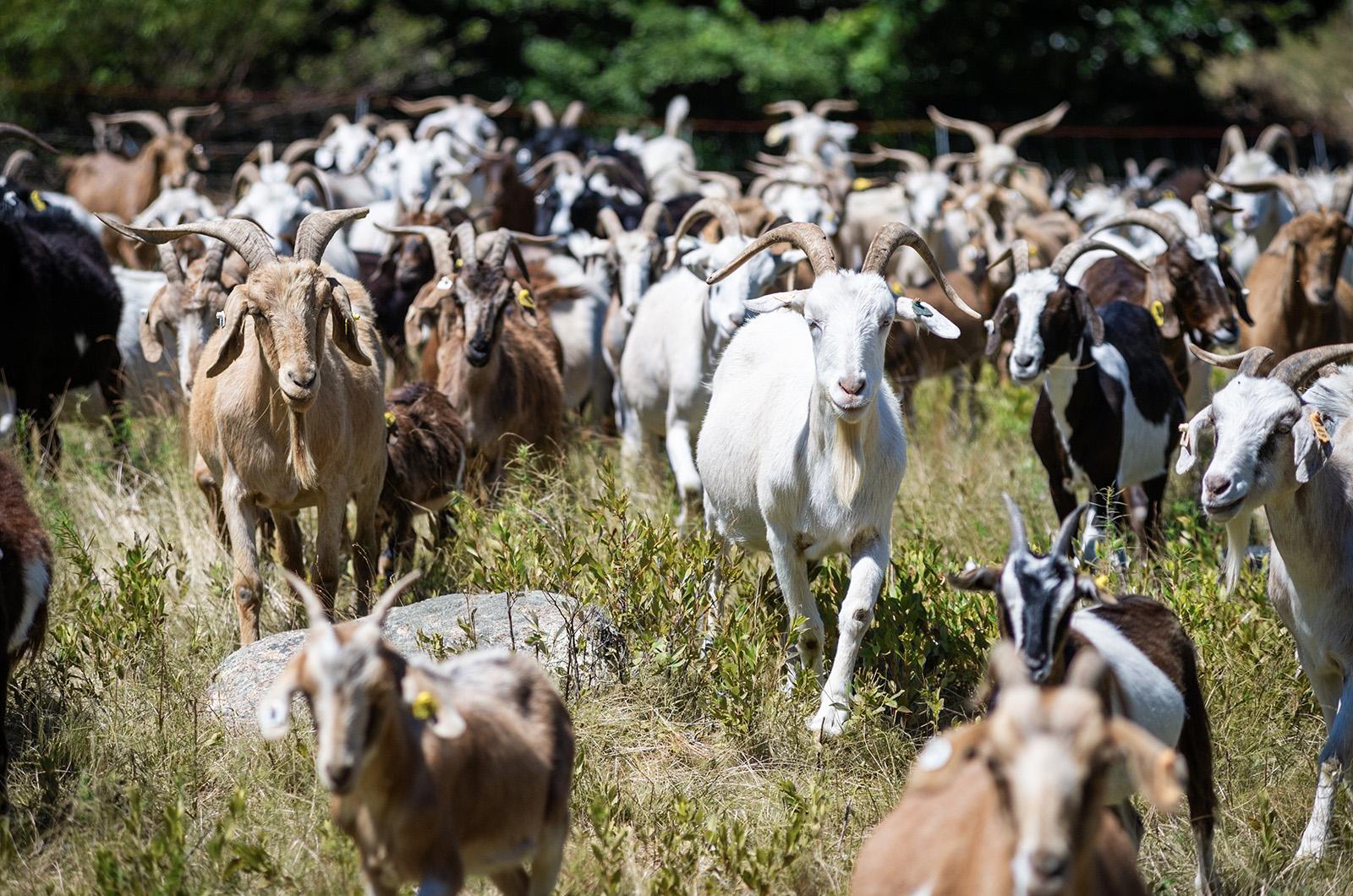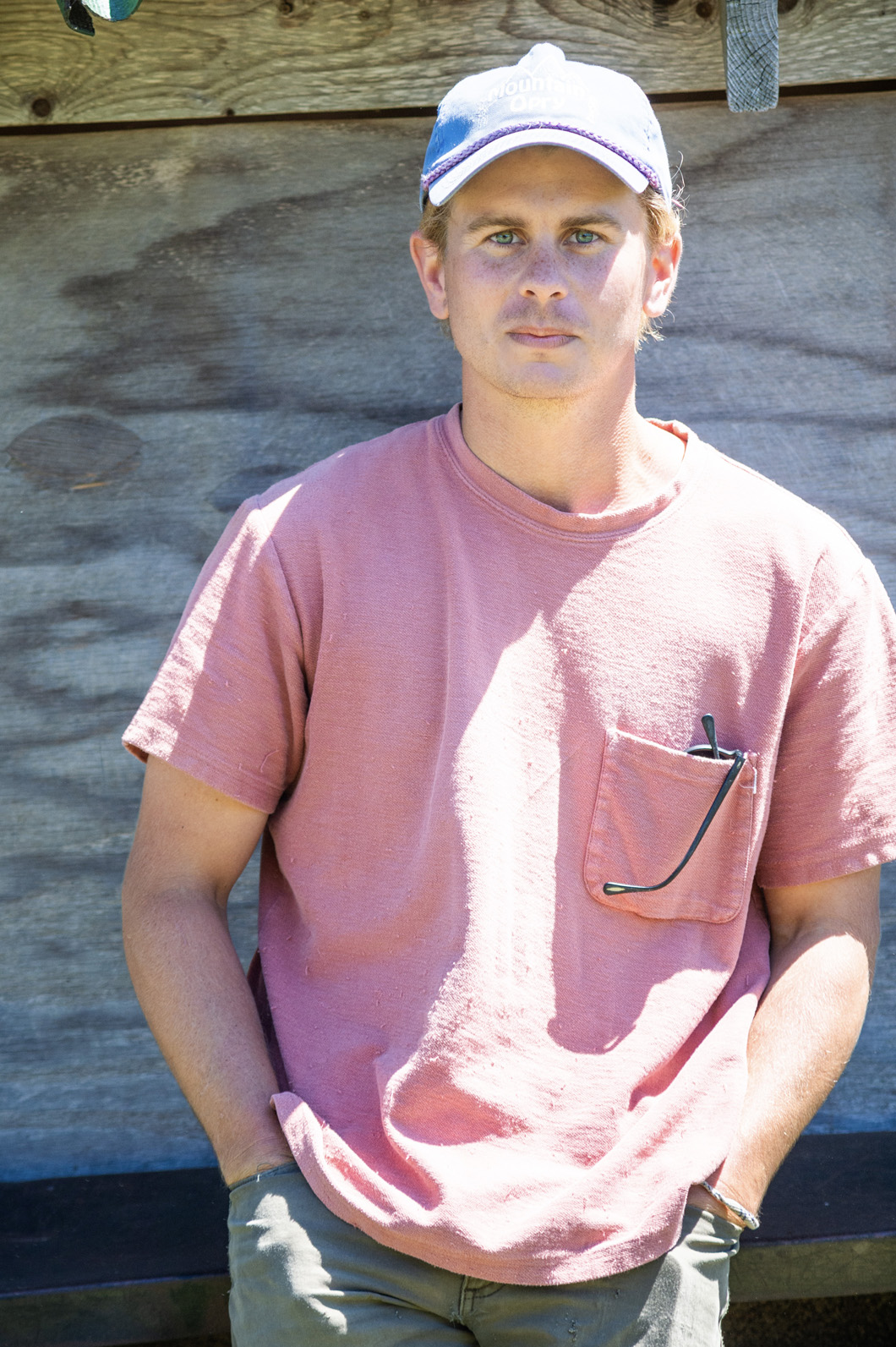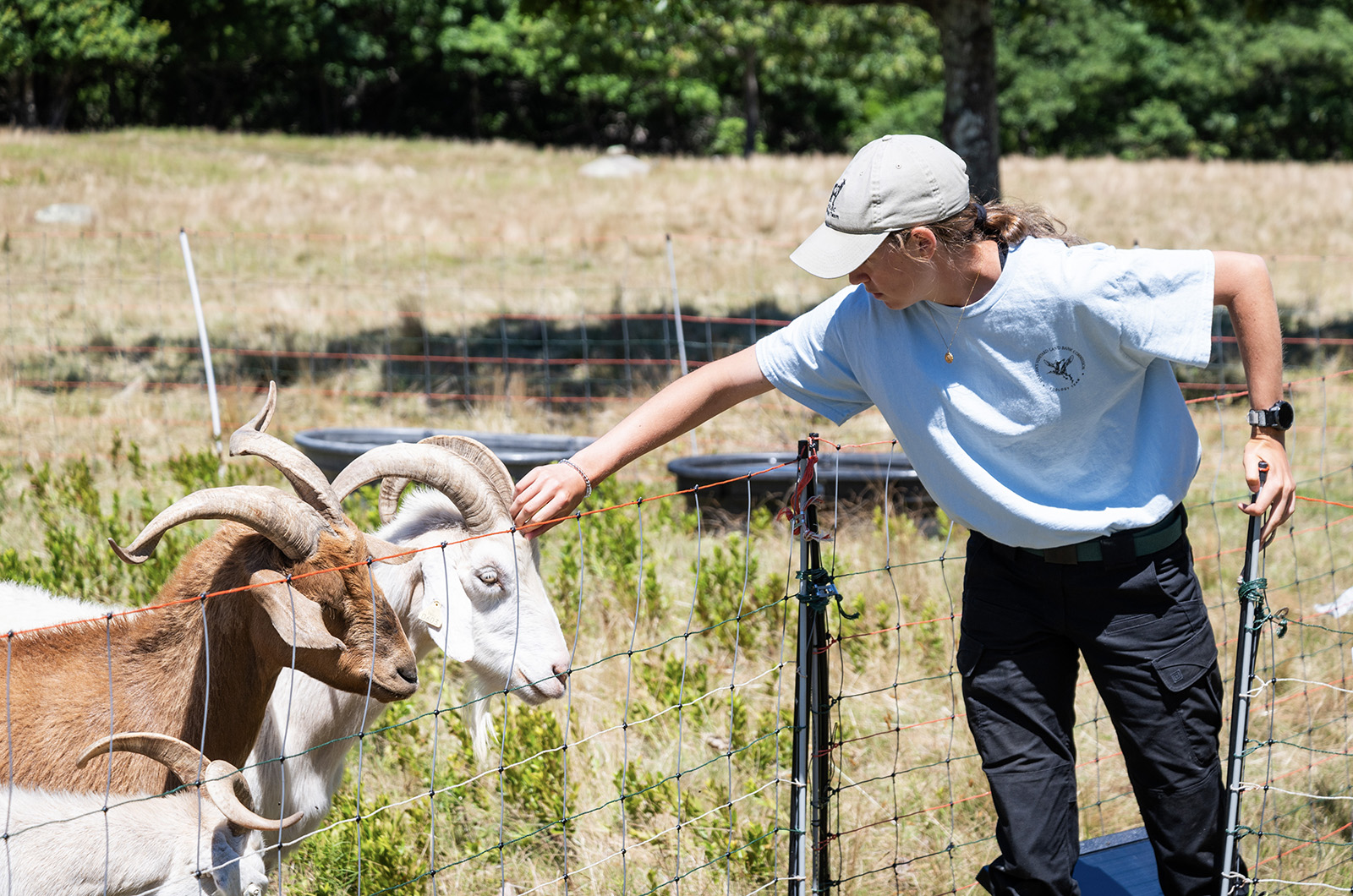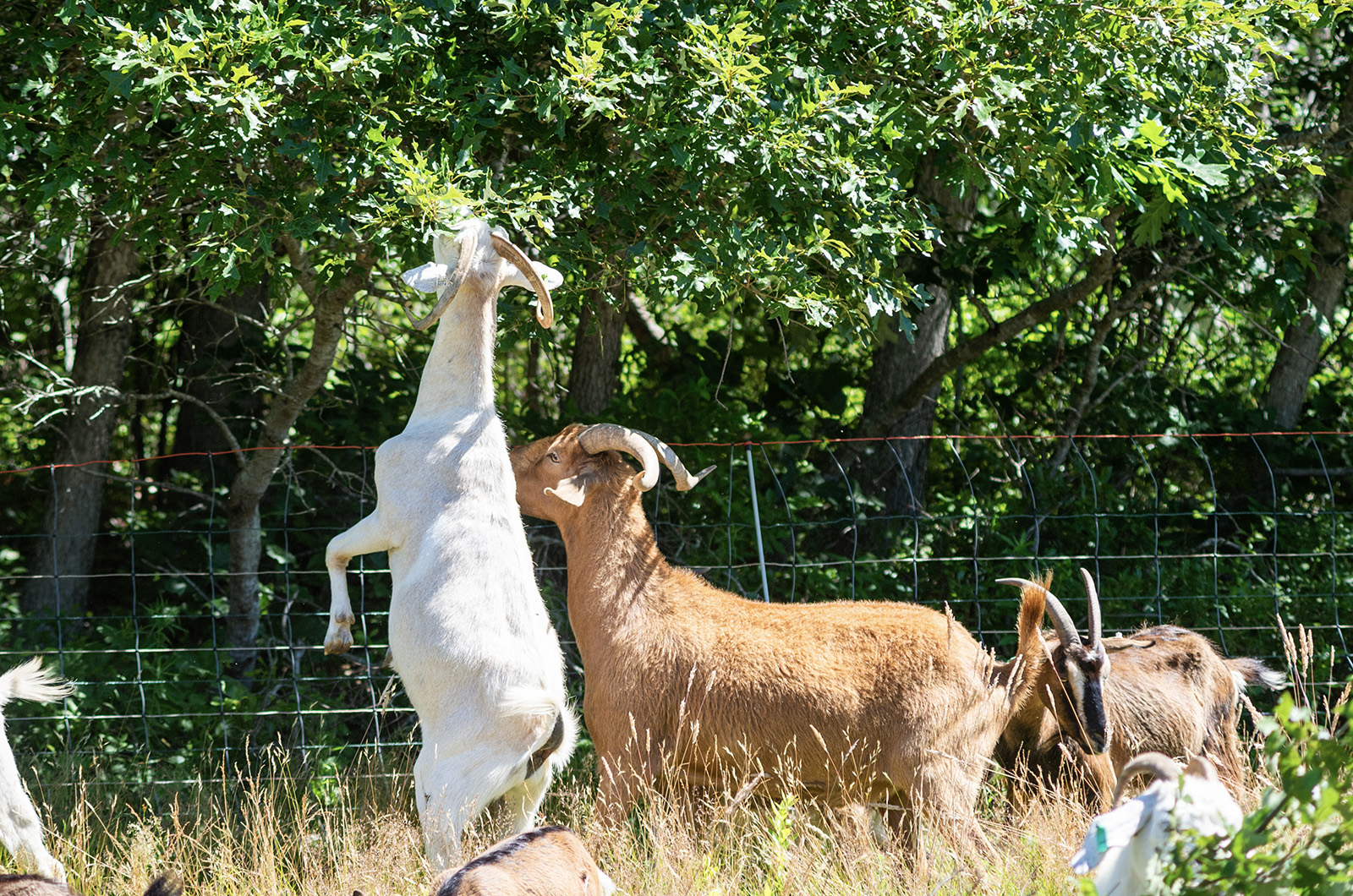Beige and brown and tan and black, with horns spiraled or semicircular or in undulating waves, a legion of goats marched up the hill toward us, bleating in anticipation of fresh grass and leaves.
And though I knew they were just hungry, and have assembled to march in search of food, I couldn’t help but feel a touch unsettled by the display.
“Its a bit unnerving,” agreed Winston Bell, the soft-spoken Mississippian who recently took over the land bank’s goat program. If even he, who spends more time with the goats any other, can share in my complex feelings with the herd, then perhaps the feeling is not so illogical?
This herd, now numbering 168, is among the largest on-Island, and certainly the most unique in its mission. They are employed to do what goats do best: eat insatiably and with wild abandon. They do this in service of conservation, chomping down fresh plant shoots to preserve Island ecosystems that would otherwise require mechanical intervention to maintain.
Yet despite all their good intentions, I cannot help but feel some trepidation at encountering this goatish hoard — and I am not alone. Ambivalence has long haunted the relationship between goat and man, all the way back to those wild goat-men of the ancient Hellenes, the Satyr, and their weird chthonic patron diety, Pan, the god who died.
For Mr. Bell, though, the association of goats with mischief and devilment is far from mysterious.
“You can understand where they got it,” he said to me, pointing out some of the more devilish looking specimens and their mischievous antics. Though Mr. Bell has previously managed horse, sheep and cattle herds, goats present a particular challenge owning to their willful defiance.
“They love to get out of the fence,” he said. “They can jump it, they can crawl under it.”
As a result, much of Mr. Bell’s time is taken up with assembling and securing the movable electrified fencing placed in the particular area the land bank wants its goats to graze. After a given area is surveyed for its plant biodiversity, Mr. Bell can begin to get to work, mowing a strip of grass around around its perimeter.
“If anything’s touching [the fence], it can draw out some charge,” he said.
In other words, what works to shock a goat can work to shock a blade of grass — long grass constantly brushing against the fence can sap its energy and effectiveness, hence the need for mowing. The fence must be closely inspected, too, for any sags or underpasses which an escapist might exploit.
But as Mr. Bell and land bank intern Abby Niewski opened up the gate that morning, and goats rushed out like thunderous wildebeest at a river crossing on the Serengeti, it hardly seemed that the herd needed any direction at all.
“They’re dying to get over,” Mr. Bell said, reffering to the new paddock filled with fresh grass and oak for the herd to enjoy.
As dragonflies buzzed in the warm pasture breeze, the g oats flooded into the pasture and initiated the same Dionysian indulgence of Satyrs of old.
It is only later in the grazing cycle, Mr. Bell said, when the goats have eaten through their favorite plants, that the escape attempts begin, and the careful fortification pays off.
In addition to the physical work though, Mr. Bell said the social side of managing a herd is critical as well, especially with an animal as smart as a goat. He has spent his first Island summer familiarizing himself with the herd’s social structure. Mambo, a venerable old castrated goat (all males in the herd are castrated) is something of the de facto leader, but the cloven-hooved polity is not a simple hierarchy.
Each goat is an individual, acting within a whole.
Most important in this social aspect herd management, Mr. Bell said, is learning to impart calm vibes in potentially high-stress situations for the herd.
“I try to make it as low stress as possible and I think animals really respond to that,” he said. “Because you can’t outwit a goat. You just can’t.”










Comments (1)
Comments
Comment policy »